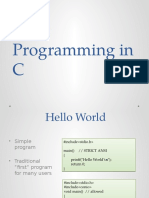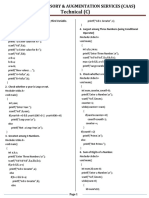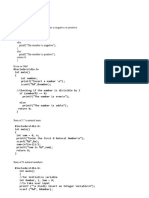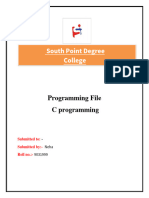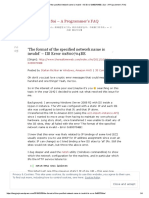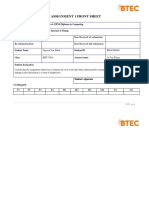0% found this document useful (0 votes)
6 views6 pagesImportant C Programs Advanced
The document contains a collection of important C programs covering various fundamental concepts such as printing 'Hello World', checking even or odd numbers, calculating factorials, and checking for prime numbers. It also includes implementations for Fibonacci series, string reversal, palindrome checking, linear search, bubble sort, file handling, recursion, stack and queue implementations, and singly linked list operations. Each program is presented with code snippets and brief descriptions of their functionality.
Uploaded by
aishwaryatsgowda02Copyright
© © All Rights Reserved
We take content rights seriously. If you suspect this is your content, claim it here.
Available Formats
Download as PDF, TXT or read online on Scribd
0% found this document useful (0 votes)
6 views6 pagesImportant C Programs Advanced
The document contains a collection of important C programs covering various fundamental concepts such as printing 'Hello World', checking even or odd numbers, calculating factorials, and checking for prime numbers. It also includes implementations for Fibonacci series, string reversal, palindrome checking, linear search, bubble sort, file handling, recursion, stack and queue implementations, and singly linked list operations. Each program is presented with code snippets and brief descriptions of their functionality.
Uploaded by
aishwaryatsgowda02Copyright
© © All Rights Reserved
We take content rights seriously. If you suspect this is your content, claim it here.
Available Formats
Download as PDF, TXT or read online on Scribd
/ 6

